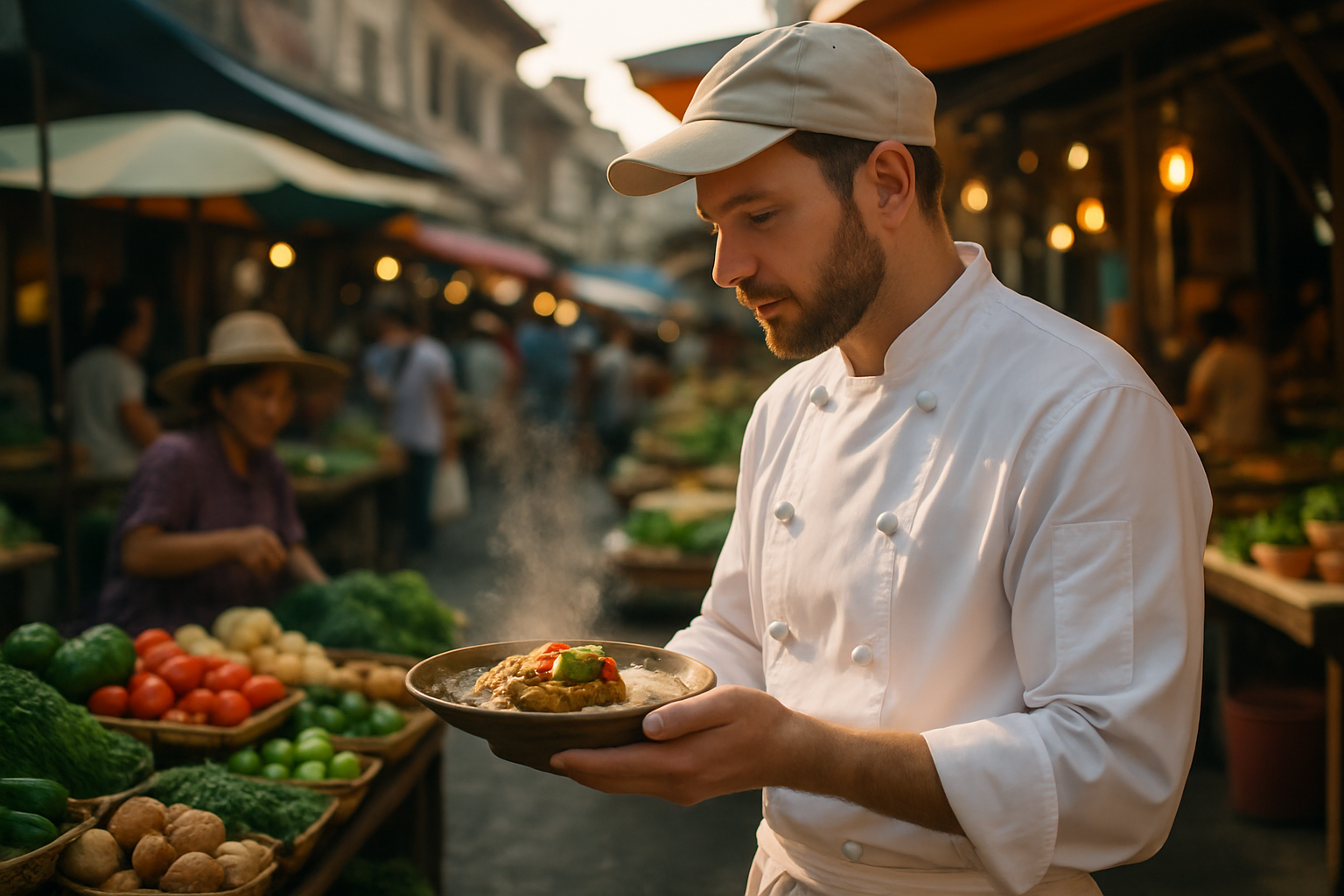Culinary Pilgrimages: Tracing the Roots of Global Cuisines
Embark on a gastronomic journey that transcends borders and time. Culinary pilgrimages are redefining travel, offering food enthusiasts the opportunity to explore the origins of beloved dishes and immerse themselves in the rich tapestry of global cuisines. This emerging trend combines cultural exploration, historical discovery, and palate-pleasing adventures, creating a truly unique travel experience.

The concept of culinary pilgrimages draws inspiration from religious pilgrimages, where devotees travel to sacred sites. In this gastronomic version, food enthusiasts journey to the birthplaces of iconic dishes, seeking to understand the historical, cultural, and environmental factors that shaped these culinary traditions.
Unearthing Culinary Roots
Culinary pilgrimages often begin with extensive research into the history of a particular dish or cuisine. Travelers delve into historical records, oral traditions, and local lore to piece together the story behind their chosen culinary focus. This process of discovery can lead to unexpected revelations about migration patterns, trade routes, and cultural exchanges that have influenced global cuisines over centuries.
For instance, a culinary pilgrimage tracing the origins of sushi might take travelers not only to Japan but also to Southeast Asia, where early forms of fermented rice and fish dishes first emerged. Similarly, exploring the roots of pizza could lead to a journey through Italy, Greece, and even ancient Persia, uncovering the diverse influences that shaped this beloved dish.
Immersive Experiences Beyond the Plate
Culinary pilgrimages offer more than just tasting experiences. They provide opportunities for hands-on learning and cultural immersion. Travelers might participate in traditional cooking classes, visit local markets to source ingredients, or even work alongside farmers and producers to understand the entire food production process.
These immersive experiences foster a deeper appreciation for the effort and expertise that goes into creating traditional dishes. They also promote sustainable tourism by supporting local communities and preserving culinary heritage.
The Role of Technology in Culinary Pilgrimages
While the essence of culinary pilgrimages lies in physical travel and firsthand experiences, technology plays a crucial role in enhancing these journeys. Mobile apps and online platforms now offer interactive maps tracing the origins of ingredients, augmented reality experiences that bring historical culinary scenes to life, and social media communities where culinary pilgrims can share insights and recommendations.
These technological tools not only make planning culinary pilgrimages more accessible but also enrich the overall experience by providing context and connecting travelers with like-minded food enthusiasts around the world.
Challenges and Considerations
As with any form of tourism, culinary pilgrimages come with their own set of challenges. Overtourism can put pressure on local communities and resources, potentially altering the very traditions that travelers seek to experience. Additionally, the authenticity of culinary experiences can be compromised when catering to tourist expectations.
Responsible culinary pilgrims must be mindful of their impact and seek ways to give back to the communities they visit. This might involve supporting local food initiatives, participating in conservation efforts, or sharing their experiences in ways that promote cultural understanding and preservation.
Savor the Journey: Tips for Culinary Pilgrims
-
Research extensively before your trip to understand the historical and cultural context of your chosen cuisine
-
Learn basic phrases in the local language, especially those related to food and ingredients
-
Seek out lesser-known regional variations of popular dishes
-
Engage with local food producers, chefs, and culinary historians to gain deeper insights
-
Document your journey through photos, recipes, and personal reflections
-
Be open to unexpected discoveries and detours in your culinary exploration
-
Consider joining a small group tour led by a culinary expert for a more structured experience
-
Practice responsible tourism by supporting local businesses and sustainable food practices
Culinary pilgrimages offer a profound way to connect with global cultures through the universal language of food. By tracing the roots of beloved dishes and immersing ourselves in the traditions that shaped them, we gain not only a deeper appreciation for the food we eat but also a richer understanding of our shared human history. As this trend continues to grow, it promises to transform the way we think about food, travel, and cultural exchange, one delicious journey at a time.






